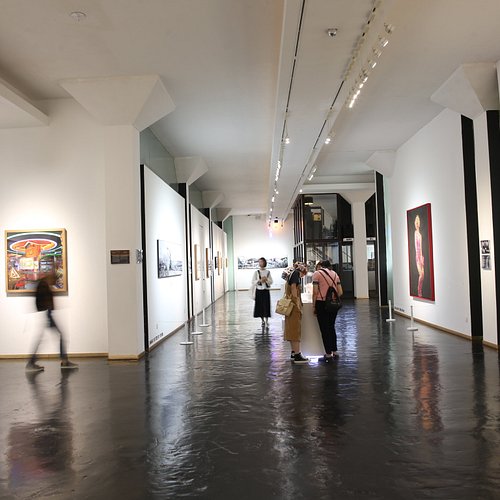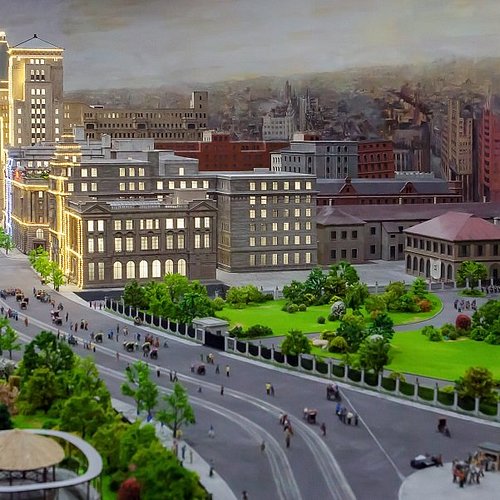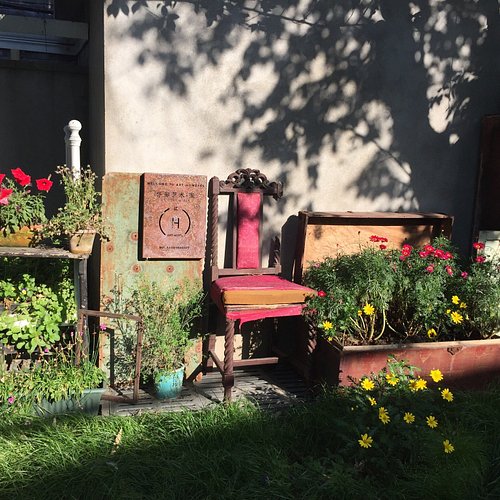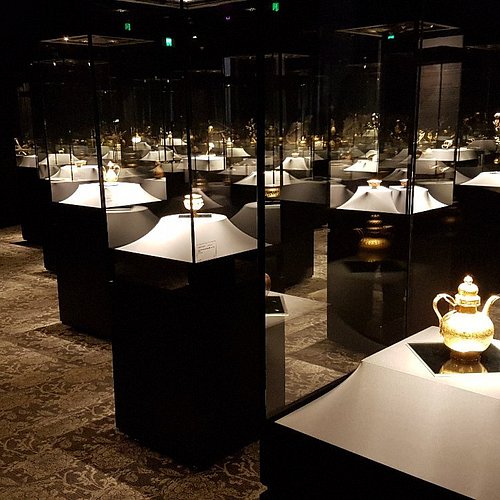10 Art Museums in Shanghai That You Shouldn't Miss
The largest city in China is also its most cosmopolitan, offering visitors a chance to experience the past, present, and future all at once. The Huangpu River splits Shanghai into two districts: Pudong and Puxi. The Pudong skyline looks like it was ripped from the Jetsons, with the bulbous Oriental Pearl TV and Radio Tower looking a bit like a two headed lollipop. On the Puxi side, you can walk the Bund riverside district to get a taste of old Shanghai.
Restaurants in Shanghai
1. M Art Center
2. 3D Printing Cultural Museum
3. island6 Arts Center
Overall Ratings
5.0 based on 10 reviews
Liu Dao is a Shanghai-based art collective of tech-geeks and creative talents driven by innovation and interaction. The collective produces cutting-edge art that engages sights and scenes from the old and new China, and elevates the skills of new talents by working from a communal forum. Liu Dao's art is visual, interactive, conceptual, humorous, and always striking, involving fresh takes on modern technology, and always the product of collaboration. Since Liu Dao's beginning, painters, sculptors, photographers, filmmakers, new media artists, software and digital imaging artists, dancers, writers, engineers, and curators have worked together to produce original, intriguing shows. At island6, all the work exhibited is made on site and specifically for the theme of a show through the collaboration of the collective’s in-house artists, curators and art directors.
4. Prada Rong Zhai (Shanghai)
5. Shine Dream Miniatures
Overall Ratings
5.0 based on 13 reviews
The first and the only miniature exhibition hall in Shanghai and in China, in which a 1:87 reduced model scene of The Bund 1920s is on the desplay.
6. Epson TeamLab Borderless - Shanghai
Overall Ratings
5.0 based on 11 reviews
teamLab Borderless Shanghai is a museum without a map, a world made of artworks without boundaries created by art collective teamLab, opened in Huangpu District, Shanghai on November 5, 2019. teamLab Borderless is one continuous world made of a group of such artworks. Artworks move out of rooms, communicate with other works, influence, and sometimes intermingle with each other with no boundaries.
Reviewed By StevenK610
Booked and paid for two tickets through WeChat for the first (10:30-12:30) slot on a weekday. Got there by taxi, and walked to the nearest metro station afterwards. There were a total of 6 other people in the queue, all wearing masks. Was sent two confirmation QR code tickets. I needed to have these electronic tickets scanned at the entry desk, and exchanged for electronic entry passes on my phone. Also needed to show valid green Shanghai health codes. Backpacks and water bottles had to go in a set of lockers. You wander freely around the rooms - every corridor and room is part of the display. The animations and lighting effects are exceptionally good, and many respond directly to your presence - in particular, the butterfly room. In this one, just by standing in the room you create butterflies that spawn directly at your location, swarm across the floor and up onto the walls, then they slowly migrate through all the other rooms and displays. Signage and information about the displays is available in Chinese and English. Scents are also used in some of the rooms, and backgound music plays through all the displays and rooms. The Crystal Room (mirrors and multicolour LEDs) is particularly impressive and immersive, although it can be a little disorientating until you get used to it, and you may need to be careful with small children to prevent them walking into the LED strips. There is a pathway leading through the room - looking at the edges of the mirror tiles on the floor helped us see where we were going.
7. Moganshan Road
8. Fosun Foundation
Overall Ratings
4.5 based on 16 reviews
Located in the Bund Finance Center, Fosun Foundation Shanghai is a non-profit organization founded by the Fosun Group and the Fosun Foundation in November 2016. Its core mission is threefold: to promote contemporary art, connect China with international cultural systems, and foster public engagement with, understanding of, and participation in global contemporary art. Through its exhibitions an
Reviewed By Chiuad0718 - San Francisco, United States
When in Shanghai, this building is a must see. The outside wall will move and it is spectacular view. After that,you can walk to the bund.
9. Shanghai Guanfu Museum
10. Pearl Art Museum
Overall Ratings
4.5 based on 3 reviews
Co-founded by Shanghai XinHua Distribution Group and Red Star Macalline Group, Pearl Art Museum (PAM) is an art institution for exhibitions, education and research, promoting art and cultural communications. PAM is designed by Japanese master architect Tadao Ando, and along with the XinHua Bookstore on the lower floor, the duplex arts space is named “Light Space”.










